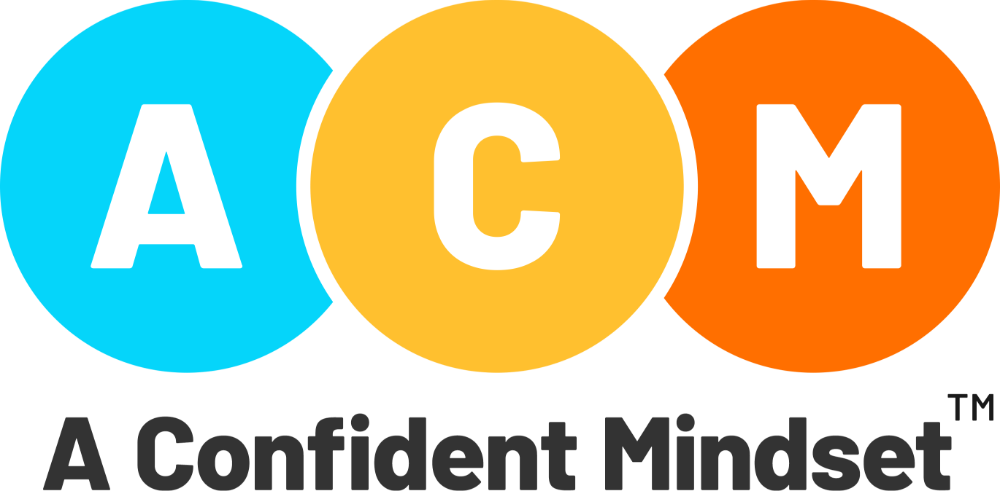
Creating a Summer Routine for Kids
Jun 04, 2025Summer offers a much-needed break from school, but, if your child thrives on predictability (like many do), that shift can leave everyone feeling a little off—and it’s easy for days to slip into too much screen time and boredom.
At A Confident Mindset™, we believe confidence doesn’t take a vacation. Summer is actually a wonderful time to nurture growth, connection, and confidence.
Let’s explore three simple tips!
Tip #1: Create a Flexible, Confidence-Focused Summer Schedule
A predictable daily schedule can help children feel secure and give them a sense of control. But this schedule doesn’t need to be rigid—as flexibility with intention can build confidence.
Here’s a simple, flexible schedule to try:
- Morning Check-In – Talk about the day ahead
- Breakfast
- Quiet/No Tech Time – Reading, puzzles, drawing
- Outdoor Activity – Walk, bike, or play
- Lunch
- Goal Time – Work on a summer goal or project
- Reflection Time – Journal or draw about progress
- Child’s Choice – Free play or tech time
- Snack
Tip #2: Identify Personal Summer Goals
When kids choose their own summer goals, they feel more motivated and engaged. The goal doesn’t have to be big—it just needs to feel meaningful to them. Working toward something personal builds focus, persistence, and pride, which are essential ingredients for growing confidence.
Some simple, confidence-building goals:
- Improve at swimming or a favorite outdoor activity, like rollerblading
- Practice an instrument regularly
- Grow a small garden or take care of plants
- Learn to cook new recipes
- Write a short story or create a comic book
Tip #3: Plan Weekly Adventures
Structure is important—but so is shaking things up. Weekly adventures give kids new experiences that spark curiosity and connection. And the best part? They don’t need to cost a thing to be meaningful.
Budget-Friendly Summer Adventure Ideas:
- Visit the library for story time or crafts
- Take a nature walk with sketchbooks or a DIY journal
- Ride bikes to a favorite spot—like the park or for ice cream
- Explore a free museum or nearby historical site
- Attend a local concert, fair, or outdoor play
- Pack a picnic and eat it somewhere new
- Volunteer together at a shelter or food pantry
Freebie Download: My Daily Summer Routine
Encourage your child to take ownership of their summer schedule with this fun, colorful template. Includes space to set a morning and evening routine Monday through Friday!
Additional Support
Visit A Confident Mindset™ for tools, training, and programs designed to help anyone—at any age or stage—build, model, and teach lasting confidence at home, in schools, or in any space where growth begins.
Frequently Asked Questions about Creating a Summer Routine
Q1: How can I help my child stay motivated with summer goals?
A: Break goals into manageable steps, check in weekly to reflect, and focus on the effort—not just the outcome. All of which fall under ACM’s Step 6: Better Practice. For example, if your child wants to learn guitar, celebrate their commitment to daily practice, not just the final performance. This teaches resilience and reinforces the value of steady growth.
Q2: What if my child resists a routine?
A: That’s totally normal, especially during summer. The key is blending structure with flexibility. Let your child help create their day—maybe they pick when to do quiet time, choose the weekly adventure, or decorate their own routine chart. Part of building confidence is finding the fun in your day, and that’s exactly what Step 3 of ACM—Be Good to Yourself—is all about. When routines feel playful and personal, kids are more likely to engage and grow from them.
Q3: How do weekly adventures build confidence?
A: Each outing brings new sights, sounds, and challenges—which gently nudge kids out of their comfort zones. Step 1 of ACM is Believe in Yourself, and there’s no better way to practice that than by trying something new. Whether it’s ordering food at a café, climbing a bigger hill on a hike, or talking to someone new at the park, these small moments help kids build courage, curiosity, and self-trust.

